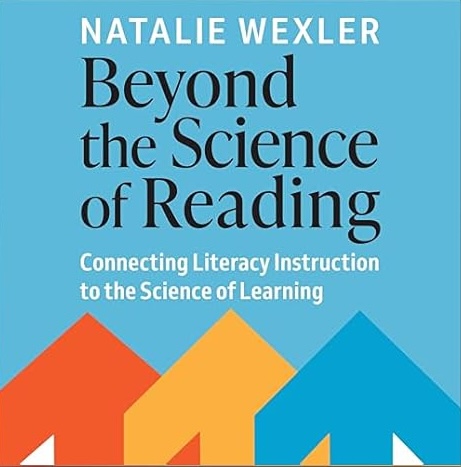
A wise friend recently asked a question that goes something like this:
Research shows that new memories connect to the places where they’re formed.
So: if I study geometry in the library, I’ll do better on a geometry test taken in the library than on the same test taken in a nearby classroom.
Why? Because my understanding of geometry is somehow connected to this particular place. (Researchers call this “context-dependent learning.”)
So, here’s the question:
Doesn’t it make sense for students to study in the room where they will ultimately take the test?
This question, it seems to me, highlights two important truths about the intersection of research and education.
Let’s explore:
Truth #1:
Psychology researchers discover ALL SORTS of useful information about learning (and therefore about teaching).
So, indeed, we do have a good research pool showing that we remember more of a topic in the place where we studied it. (Say: geometry in the library.)
That’s really helpful to know!
If you’re interested in this story, check out How We Learn by Benedict Carey. He’s a science writer for the New York Times, and has a story-teller’s knack for making even dry material fascinating.
In this case, the story begins with scuba-diving, so it’s exciting all on its own.
Of course, the good research news doesn’t stop there. For example:
We’ve got lots of good research (say, from Dr. Barbara Fenesi) suggesting that mid-lecture exercise breaks benefit learning.
Also: we’ve got research (say, from Dr. Faria Sana) showing that off-task laptop use distracts the laptop user. Even worse, it distracts the people sitting behind the off-tasker!
This list could go on for pages.
Each of these research pools might result in practical school-keeping suggestions:
Students should study in the room where they take the exam!
Classes should stop for exercise breaks!!
Schools should forbid laptops!!!
And so forth.
So, again: Truth #1 is that psychology research has LOTS of potentially useful information for teachers.
I promised that my friend’s question would prompt two truths. So, here’s the second…
Truth #2:
Psychology researchers and teachers think about similar questions in very different ways.
For that reason, teachers should KNOW about psychology research, but shouldn’t necessarily DO what research implies.
Let’s take these examples one at a time.
Yes, because of “context dependent learning,” students will do better on tests if they study in the room where the test will be held.
But as a teacher, I don’t want my students to know the material for the test. I want them to KNOW THE MATERIAL, full stop.
For instance: when my students learn about comedy and tragedy, I want them to write good papers about Macbeth and Fences.
But — MUCH more important – I want them to think about comedy and tragedy at unexpected times in the future.
If you watched the 3rd episode of “Last of Us,” you know that it fundamentally rewrites the basic rules of comedy. I didn’t anticipate that connection when I taught my students about comedy and tragedy…but I certainly hope that they make it spontaneously.
And – crucially – I hope they make the connection somewhere other than our classroom. I don’t want their knowledge to be bound up in one context; I want their knowledge to be gloriously flexible.
So, my advice to my friend is: do NOT have students study where they will take the test. Have students study in many different places so that their knowledge doesn’t become dependent on only one context.
The Bigger Picture
As you can see, the practical teaching advice implied by research doesn’t always make actual classroom sense. (In fact, teachers often assume that researchers are offering advice; often, they’re simply answering research questions.)
Let’s keep going with that idea.
Should we interrupt class for exercise breaks? Fenesi’s research implies we should.
Well, maybe.
When I teach my acting classes, my students are already up and moving. What additional benefit would exercise provide?
If I taught in a business school, or a divinity school, or a meditation retreat, it’s not obvious that exercise fits the appropriate classroom vibe.
Teachers benefit from knowing about Fenesi’s exercise research, but we should apply it flexibly.
Well, surely we should ban laptops; Sana’s research is regularly cited to make that case.
Again: maybe.
If I taught in a large lecture hall and had no way to control students’ laptop use, I’d certainly consider doing so. But:
Professors can explain the perils of laptop multitasking, and ask TAs to keep an eye out for potential distractors. (A friend of mine does just this.)
In my own classroom, it’s relatively easy to see who is or isn’t multitasking; why forbid a useful tool if I don’t have to?
Here again, I’m glad that Sana’s research offers us guidance, but we have to think for ourselves as we apply it to the classroom.
TL;DR
Q: Should students study in the room where they will take the test?
A: Like so much “research-based teaching advice,” this idea seems like a tempting application of a simple research finding.
BUT, we always have to think beyond these findings to understand how research can best guide our classroom practice.
Carey, B. (2015). How we learn: the surprising truth about when, where, and why it happens. Random House Trade Paperbacks.
Fenesi, B., Lucibello, K., Kim, J. A., & Heisz, J. J. (2018). Sweat so you don’t forget: Exercise breaks during a university lecture increase on-task attention and learning. Journal of Applied Research in Memory and Cognition, 7(2), 261-269.
Sana, F., Weston, T., & Cepeda, N. J. (2013). Laptop multitasking hinders classroom learning for both users and nearby peers. Computers & Education, 62, 24-31.






